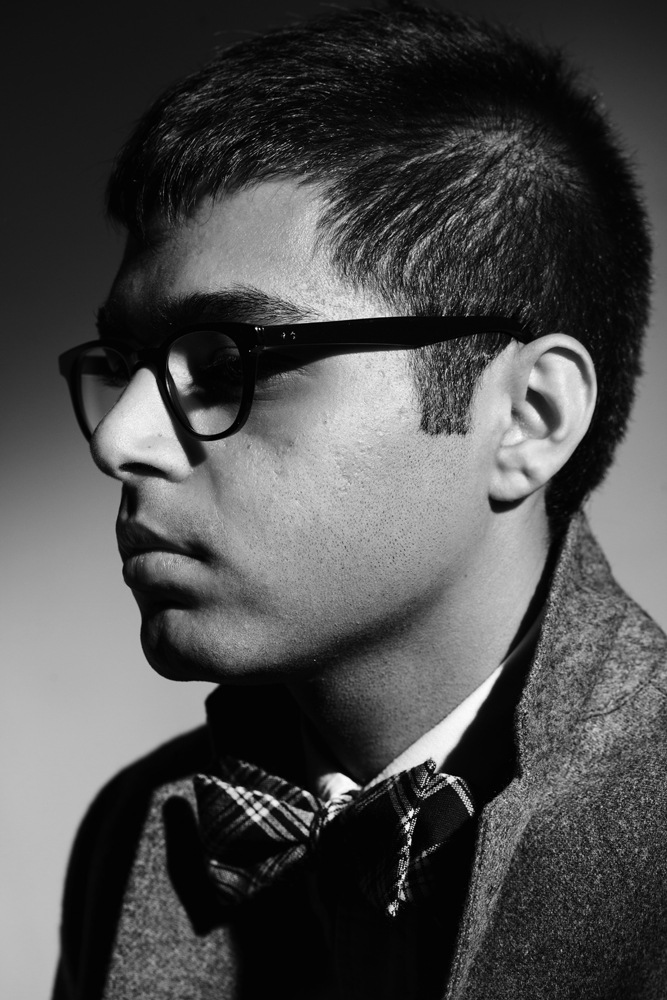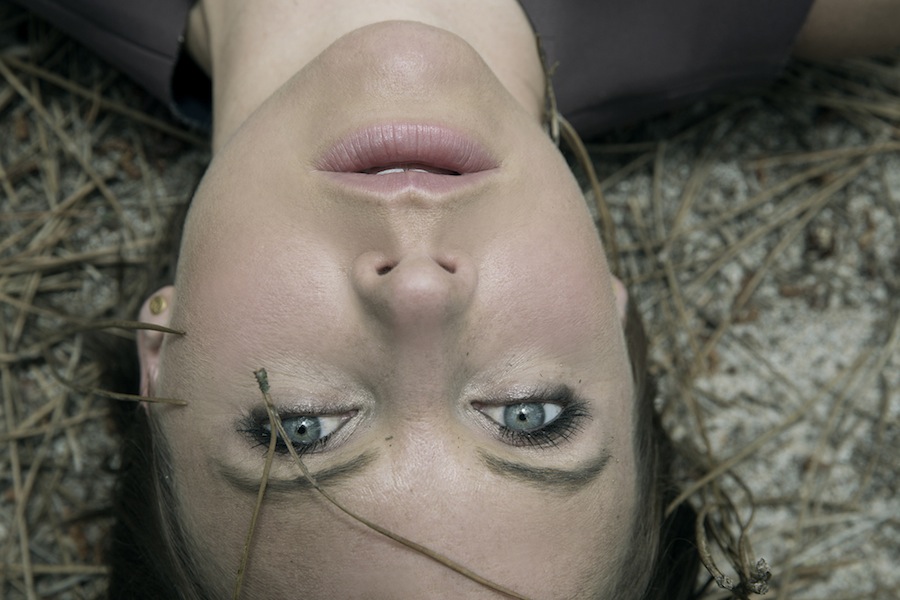May
08
with Rafiq Bhatia & Sarah Neufeld “The Ridge”
Wed May 8th, 2013
8:00PM
Main Space
Minimum Age: 18+
Doors Open: 7:00PM
Show Time: 8:00PM
Event Ticket: $13
Day of Show: $15
**************************
TABLE SEATING POLICY
Table seating for all seated shows is reserved exclusively for ticket holders who purchase “Table Seating” tickets. By purchasing a “Table Seating” ticket you agree to also purchase a minimum of two food and/or beverage items per person. Table seating is first come, first seated. Please arrive early for the best choice of available seats. Seating begins when doors open. Tables are communal so you may be seated with other patrons. We do not take table reservations.
A standing room area is available by the bar for all guests who purchase “Standing Room” tickets. Food and beverage can be purchased at the bar but there is no minimum purchase required in this area.
All tickets sales are final. No refund or credits.
1
Colin Stetson presents SORROW, a reimagining of Gorecki’s 3rd Symphony

COLIN STETSON PRESENTS: SORROW – A REIMAGINING OF GORECKI’S 3RD SYMPHONY
RELEASED APRIL 8TH on 52Hz VIA KARTEL MUSIC GROUP – CD / 2LP / DIGITAL
Symphony No 3, composed by Polish composer Henryk Górecki in 1977, became one of the biggest sellers of classical music of all time, when Elektra Nonesuch’s 1992 recording of the ‘Symphony of Sorrowful Songs’ was released. The symphony is centred on three texts – including a prayer inscribed by a teenager on a cell wall of a Gestapo headquarters – which the composer turned into haunting laments, backed by simple, slowly churning surges of beautiful music. ‘Symphony of Sorrowful Songs’ sold over 1 million copies and topped classical charts in the USA and Britain. This popular acclaim did not generate wide interest in Górecki’s other works, and he pointedly resisted the temptation to repeat earlier success, or compose for commercial reward. Górecki died in November 2010 aged 76.
Colin Stetson is an American saxophonist and multireedist. ‘SORROW’, led by Stetson, is a re-imagining of Henryk Górecki’s most famous piece.
“We all have those moments when we experience a piece of music that transforms us, and this was one of those moments for me. Over the years, I went on to listen to this record countless times, always determined to absorb every instance of it, to know it throughout and fully. And this dedication to a thorough knowledge of the piece eventually gave way to a need to perform it.
“The concept was simple, and true to the original score. I haven’t changed existing notation, but rather have worked with altering instrumentation, utilizing a group consisting heavily of woodwinds, synthesizers, and electric guitars, as well as retaining an element of the orchestral in a string section of violins and cellos, which features prominent and decorated Canadian musicians Sarah Neufeld (Arcade Fire, Bell Orchestre) and Rebecca Foon (Saltland, Esmerine).
“My approach was “additive”, in that I imagined certain sounds or parts, though not present in the original, were (to me) extensions of the emotional core of the piece. For example, the instrumentation is rounded out by the most extreme of those sonic/timbral/musical additions, the drum set. Performed inimitably here by NYC drummer/percussionist, Greg Fox (Liturgy, Guardian Alien, Z’s). My background and education in classical concert music is here, as well as a focus on group improvisation. The arrangement draws heavily from the world of black metal, early electronic music, and from my own body of solo saxophone music.
“The result is an intact rendition of Henryk Górecki’s 3rd Symphony, though one which has been filtered through the lens of my particular musical aesthetic and experience.” – Colin Stetson, 2015
Colin Stetson official site
Colin Stetson on Facebook
Colin Stetson on Twitter
Rafiq Bhatia

Rafiq Bhatia official site | Rafiq Bhatia on Twitter | Rafiq Bhatia on Facebook | Rafiq Bhatia on Instagram | Rafiq Bhatia on YouTube
reaking English, the Anti- Records debut of New York composer and guitarist Rafiq Bhatia, seeks to shatter preconceptions about how much can be said without a word—and, for that matter, who can say it. Bhatia’s audacious first album as a producer sets out to challenge existing musical vocabulary with a language of its own.
In 2012, Bhatia issued two improvisation-driven recordings whose surreal sonics “set them miles apart from the vast majority of records by jazz musicians” (New York Times). These releases earned immediate acclaim; the Washington Postobserved, “Instead of haggling over jazz’s traditional perimeters, both recordings employ the sonic language of hip-hop and electronic composition to press toward a more interesting future.” But with his next project, Bhatia felt compelled to find a more personal path forward. For most of his listening life, he’d loved records in which familiar sounds were refashioned into wonderfully alien strains, where iconoclastic ideas met cutting-edge technology to yield a new lexicon. Making music like this would mean reaching beyond his six strings and customarily collaborative approach, especially his reliance on outside producers. To get where he needed to go, he would need to learn how to sculpt sound for himself.
It was during this period of reinvention that Bhatia joined Son Lux, a studio-centered project in which producer Ryan Lott used software to warp found sounds into dazzling electronic experiments. Son Lux afforded Bhatia the chance to record with the likes of Lorde and Sufjan Stevens, but, more important, it gave him the support he needed to develop his voice as a producer—the process that ultimately yielded Breaking English.
The resulting album ruptures the hermetic vernacular of ambient sculpturalism with the emotional intensity of avant-garde jazz, using the techniques of the former to achieve the feeling of the latter. Its language is centered on contrast, with opposing strains juxtaposed in order to throw each other into sharper relief—the organic feels more vibrant in the context of the mechanical, the otherworldly more ethereal in light of the ordinary. Throughout, Bhatia’s guitar is just one part of a teeming, much bigger picture. Tense violin, exhaled gospel vocals, ricocheting drums and foreboding bass also populate Breaking English, all characters in an enveloping piece of musical cinema.
Bhatia is the first-generation American son of Muslim immigrant parents who trace their ancestry to India by way of East Africa. Early influences such as Jimi Hendrix, John Coltrane, and Madlib—as well as mentors and collaborators including Vijay Iyer and Billy Hart—prompted him to see music as a way to actively shape and represent his own identity, not limited by anyone else’s prescribed perspective. Bhatia’s embrace of the electronic realm bolsters his ability to express hybridity. At times, he uses the studio to destabilize, twisting the stereotypes of Indian music he heard as a child into noise beyond recognition. But frequently, he exaggerates the human qualities of the sound he mines, conveying intimacy and tension through elements many producers would scrub clean.
All told, Bhatia seamlessly integrates dozens of different ideas throughout Breaking English. Take the title track, a marvelous chimera of deconstructed soul, where skittering drums dodge explosions of white noise as a detuned choir gasps for air. Trips to the Great Rift Valley of Africa and the mosques of Istanbul inspired the swirl of sculpted noise that begins the album. His horror with the news of these last several American years and his empathy for the Black Lives Matter movement supercharge the menacing “Hoods Up.” A fascination with avant-garde cuisine actually helped to shape “The Overview Effect,” a breathtaking piece that expresses the overwhelming fragility of the Earth as seen from outer space. The contaminated orchestra of “Olduvai II — We Are Humans With Blood In Our Veins” bottles the nightmare of waking up brown in America on November 9, 2016.
From start to finish, Breaking English suggests one very deep breath, one instant capable of carrying so much. Beauty, violence, death, rebirth—it’s all tucked into the two-movement “Perihelion,” an eight-minute descent into the sun that uses distance and perspective to ponder the line where what dazzles us can destroy us, where something so sustaining can turn sinister. That Icarus-like enticement speaks to Breaking English, an album that required an already-accomplished musician to abandon what he knew and test his own limits. That risk rewards repeatedly here, on a record that funnels a universe of anxiety, hope, and inspiration into one singularly provocative and mesmerizing statement.
Anti- Records will release Breaking English on April 6, 2018.
Sarah Neufeld “The Ridge”

Sarah Neufeld is a violinist and composer based in Montréal, Canada. Best known as a member of Arcade Fire, she is also a founding member of the acclaimed contemporary instrumental ensemble Bell Orchestre, and most recently as half of an exciting new duo with renowned saxophonist Colin Stetson.
Neufeld began developing pieces for solo violin in a formal sense in 2011, though she has made improvisation and solo composition part of her process and practice since first picking up the instrument at a young age. Neufeld counts Bela Bartok, Steve Reich, Iva Bittova and Arthur Russell among the formative influences for her solo work, in tandem with an ear for the textures and sensibilities of contemporary electro-acoustic, avant-folk and indie rock music.
Neufeld’s debut solo album Hero Brother, released August 20/2013 on Constellation Records, indeed channels all of the above, flowing through shifting atmospheres and oscillating between restrained, stately ambience, emotive études, and raw kinetic energy. Small touches of wordless vocalisation, harmonium and piano supplant the violin in a few places. The album was recorded in Berlin by pianist and producer Nils Frahm, with Neufeld’s performances captured in a number of locations with site-specific acoustics, including an abandoned geodesic dome.
Neufeld is currently preparing for the release of her second full length album, The Ridge, out February 26th, 2016. This new body of work sees Neufeld moving away from Hero Brother‘s classical minimalism and sepulchral ambience, and into the world of rhythmic pop minimalism. The Ridge employs more emphasis on vocalizations than Neufeld’s previous works; the interplay between Neufeld’s voice and violin has become strongly integrated and narrative. The album also features Arcade Fire’s Jeremy Gara on drums, adding greater layers to the compositions, creating an intense, dynamic atmosphere, and a captivating listen from start to finish.
Sarah Neufeld official site
Sarah Neufeld on Twitter
Sarah Neufeld on Instagram

